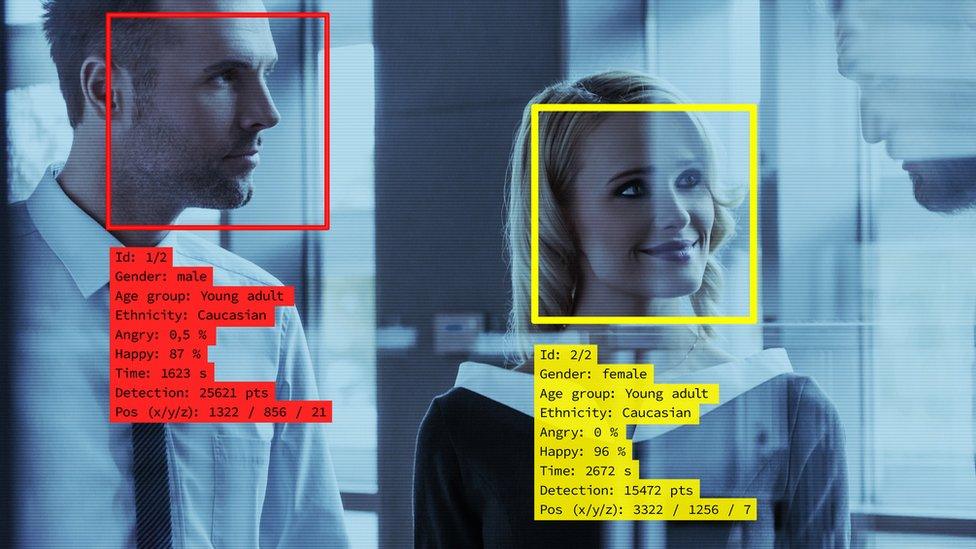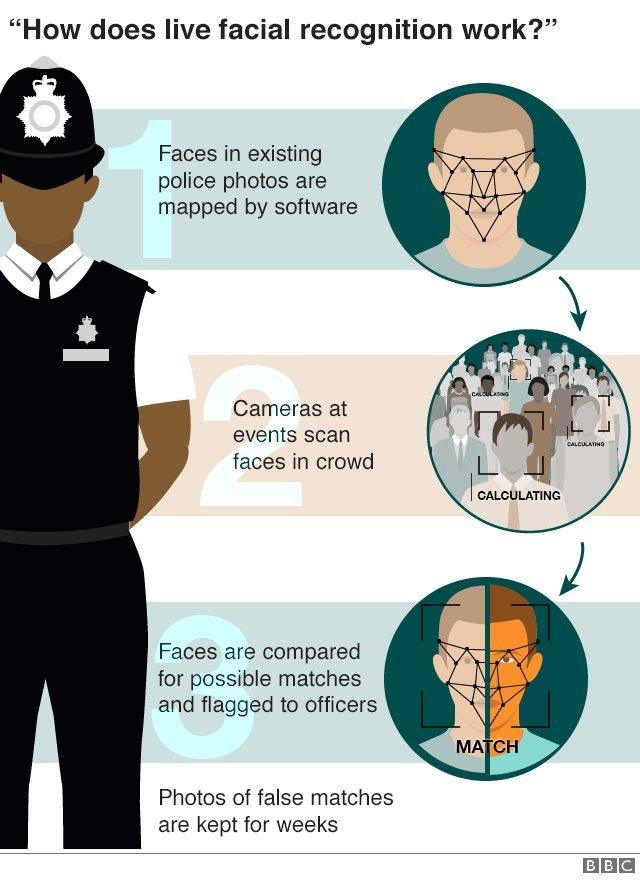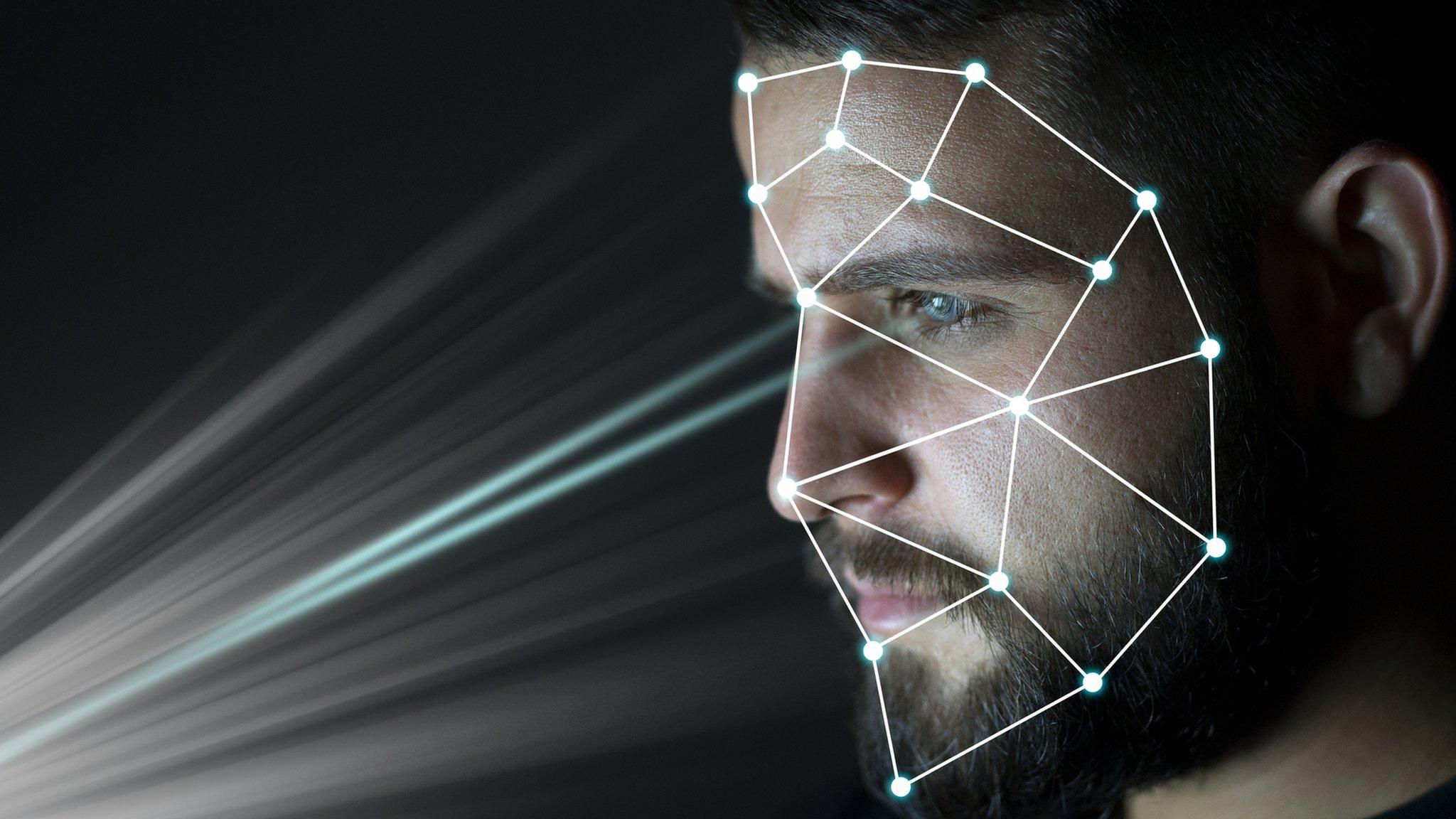EU plans new rules for AI but experts seek more detail
- Published
- comments

The European Commission has said it intends to draw up new rules to protect citizens against misuses of artificial intelligence (AI) tech.
It likened the current situation to "the Wild West" and said it would focus on "high-risk" cases.
But some experts are disappointed that a white paper it published did not provide more details.
A leaked draft had suggested a ban on facial recognition's use in public areas would be proposed.
Industry Commissioner Thierry Breton suggested the new legislation would be comparable to the General Data Protection Regulation. The far-reaching law governing data privacy came into effect in 2018, with harsh financial penalties.
"As with GDPR, we have our own rules and we will have them here," Mr Breton said.
"They will make sure that the individual and fundamental rights that we cherish in Europe are respected."
A new law would not be applicable to the post-Brexit UK, unless it decided to adopt similar rules of its own.
European debate
The white paper, external signals the start of a process that could lead to new legislation targeting AI systems and the businesses that make them.
While there were no specific proposals on how to regulate facial recognition, the document did say in a footnote that "freedom of expression, association and assembly must not be undermined by the use of the technology".
It also contained suggestions about how AI in general could be regulated in order to ensure it is ethical.
These included:
training AI on datasets that are broadly representative of the population, to avoid bias
requiring organisations to keep detailed records of how AI systems were developed
requiring that citizens be clearly informed whenever they are interacting with automated systems rather than human beings
potentially re-training AI systems developed outside the EU so that they comply with rules particular to the bloc
The chief purpose of the document was to "launch a broad European debate" on such proposals. But some researchers said the paper could have been clearer about what the dangers of AI were and how they could be tackled.
Facial recognition fears
"It will legalise mass surveillance," said independent researcher Dr Stephanie Hare.
Dr Hare argued that the commission should implement a multi-year moratorium on facial recognition technology, so that experts can be consulted on how or if such systems can be implemented ethically.
"What's the rush to roll this stuff out?" she added.
Such bans have started to crop up elsewhere, including in San Francisco, and the idea was mentioned in earlier leaked drafts of the white paper.
However, no references to a ban or moratorium were made in the final published document.

Some UK police forces are already using facial recognition systems in public
Michael Veale at University College London said the white paper was a "missed opportunity".
"It focuses far too heavily on the system in isolation without considering the context around it, the business model, what it's being used for, the economic and political systems that are pushing for AI."
Dr Veale said that existing laws - including GDPR - offered protections against the misuse of facial recognition.
He argued it might be better to focus on enforcing those laws rather than developing new ones.
Regulatory hold-ups
Dr Veale added that he personally had "several" complaints lodged with regulators against tech companies, But he has yet to be informed of any resulting action.
"They have all been pending for nearly two years," he told the BBC.
The white paper was "disappointingly" weak on facial recognition and AI-powered biometrics, tweeted Daniel Leufer, external, at digital rights group Access Now.
However, some welcomed the lack of concrete proposals on facial recognition at this stage.
"Sceptics could say that the commission is 'kicking the can down the road'," said Theodore Christakis at the University Grenoble Alpes, and member of the French National Digital Council.
"But it only seems reasonable that the commission needs more time to examine such a complicated issue and to advance carefully in this field."
- Published17 January 2020

- Published18 April 2018

- Published28 January 2020
